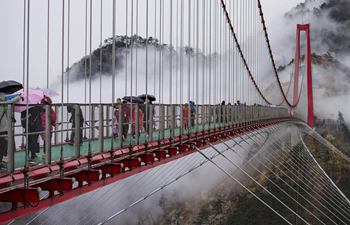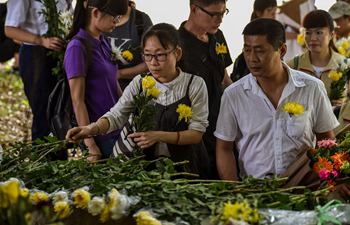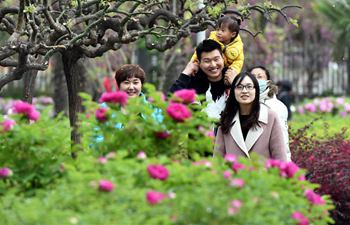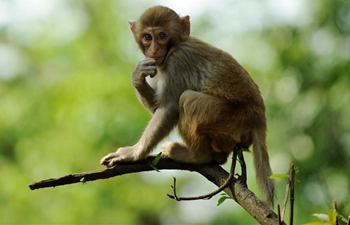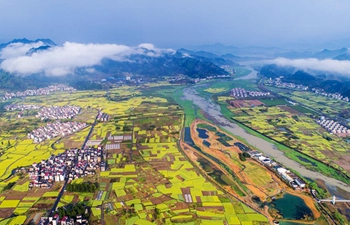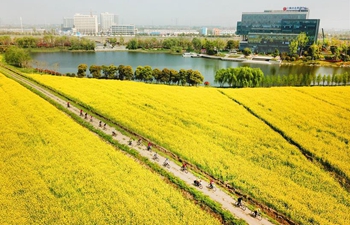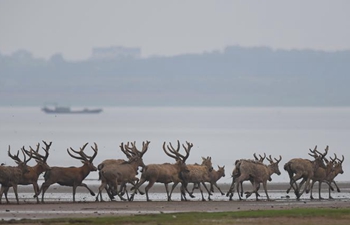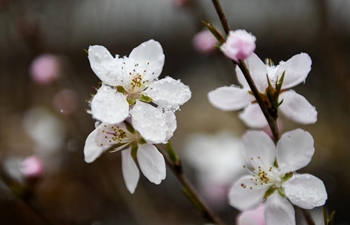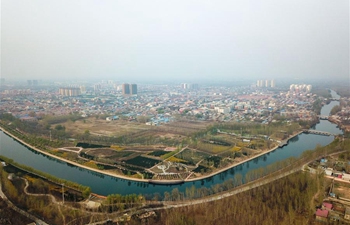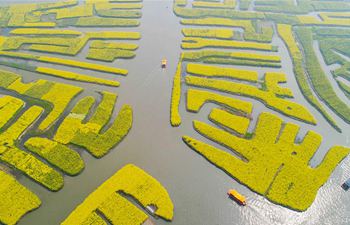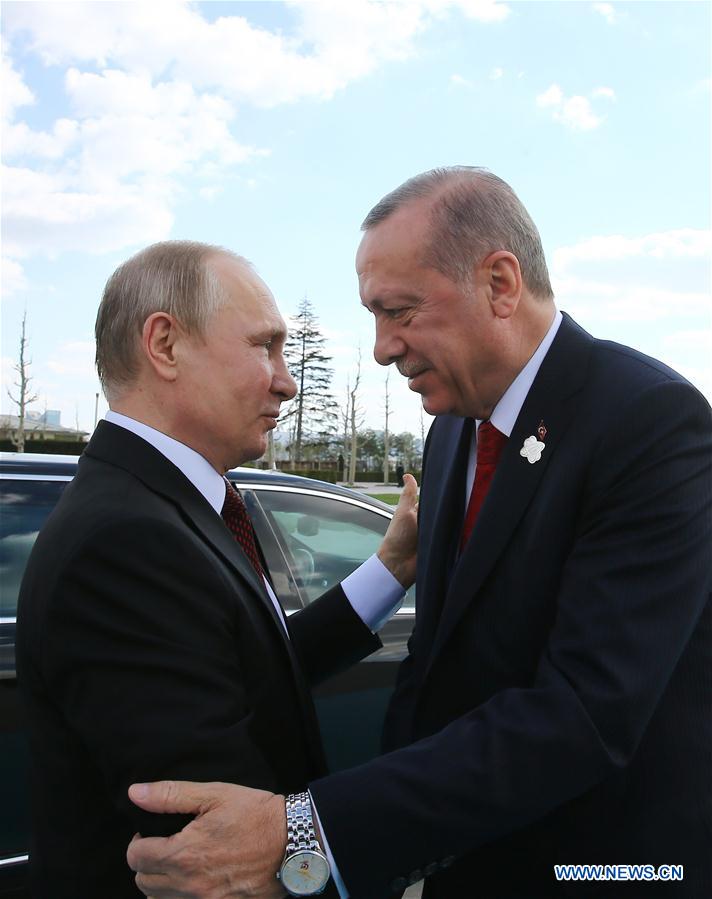
Turkish President Recep Tayyip Erdogan (R) shakes hands with Russian President Vladimir Putin at the Presidential Palace in Ankara, Turkey, on April 3, 2018. (Xinhua/Turkish Presidential Palace)
ISTANBUL, April 5 (Xinhua) -- As Russian President Vladimir Putin's latest visit puts Turkey's flourishing ties with Russia in the spotlight, analysts expect the rapprochement to continue amid Ankara's ongoing rifts with the U.S. and NATO.
With its frustration with Western allies continuing to grow in the past years, Ankara has significantly boosted its ties with Moscow following a stormy period sparked by Turkey's downing of a Russian fighter jet in November 2015.
Russia is building the first nuclear power plant in Turkey, a 20 billion-U.S.-dollar project, based on an agreement concluded in 2010. During his two-day visit that ended on Wednesday, Putin and his Turkish counterpart Recep Tayyip Erdogan jointly laid the foundation for the plant.
Many feel, however, Turkey may well in the long term be forced by its interests to turn to its Western allies while keeping good relations with Moscow.
Turkey's honeymoon with Russia is probably "neither sustainable nor irreversible in the long run," Faruk Logoglu, a former senior diplomat, told Xinhua in an interview.
But, long-term strategic interests dictate that Turkey stays in NATO, pursues EU accession and mends relations with the U.S., while maintaining close ties with Russia, Logoglu argued.
Apparently, the Turkey-Russia rapprochement is also yielding fruits in the sensitive area of defense.
Despite repeated warnings from the U.S. and NATO, Ankara seems determined to buy the S-400 air defense system from Moscow, as Erdogan declared at a joint press conference with Putin that the issue was now over and done with, signaling that Ankara would not back out of the deal under pressure.
The two countries may also cooperate on some other defense projects, added Erdogan.
Cahit Armagan Dilek, head of the Ankara-based 21st Century Turkey Institute, believes that Turkey's booming ties with Russia have much to do with personal choices being made by Erdogan as the head of Turkey's ruling party.
Erdogan's government, accused by the West of drifting toward authoritarianism, neither gets along with its Western allies nor feels being part of the West, but it benefits from cooperation with Russia, said Dilek.
Erdogan and Putin have met eight times during the past year, a feat that reveals close cooperation.
Erdogan wants to use the good ties with Moscow as a trump card in his dealings with the West, maintained Dilek, a former staff officer in the Turkish military.
Ankara has been cooperating with Russia and Iran rather than the United States, its NATO partner, in the Syrian theater since the summer of 2016 when it started to restore ties with Moscow.
Valery Gerasimov, chief of the General Staff of the Russian armed forces, was in Ankara ahead of Putin's arrival to discuss Syria in particular with his Turkish counterpart Hulusi Akar.
Turkey successfully completed in March, with Moscow's tacit approval, a military operation against Syria's Afrin region held by Kurdish militia, which is seen by Ankara as a terror group.
On Wednesday, Iranian President Hassan Rouhani joined Erdogan and Putin for a new round of talks on peacemaking in Syria.
For its part, Russia has used the rapprochement to conclude some agreements with Turkey, which serve Moscow's interests and pull Ankara to its side on the Syrian issue, Dilek said.
"It managed, thanks particularly to the S-400 deal, to create a crack within NATO between Turkey and the West," he said.
Like many, Logoglu sees the S-400 deal as a new threshold in the Turey-Russia defense ties.
"For Russia, the current trajectory is fed by deliberate policy choices to lure Turkey away from the West," he explained. "For Turkey, however, the growing reliance on Russia is not by choice, but by default. Russia is a historical rival and can easily revert to hostility when its interests are at stake."
In Turkey, it is widely argued that the country is becoming too dependent on Russia as far as energy is concerned.
Turkey is importing around half of its natural gas and 30 percent of coal from Russia, and Moscow is Ankara's third biggest supplier of oil. As Moscow is building Turkey's first nuclear power plant and shall supply the fuel for it, Ankara will rely on Moscow for nuclear fuel as well.
Dilek expects the Ankara-Moscow ties to deepen as long as both Putin and Erdogan remain in power, as the Turkish leader has expressed hope for bilateral trade volume to grow to 100 billion dollars from 22 billion dollars in 2017.
Should Erdogan get re-elected in the next election, Turkey may shift more toward Eurasian powers, Dilek said, arguing that Erdogan's views and the presidential system to be installed could pull Turkey further away from the West.
Turkey is scheduled to hold parliamentary and presidential elections in November 2019 and shift to an all-powerful executive presidency thereafter.




